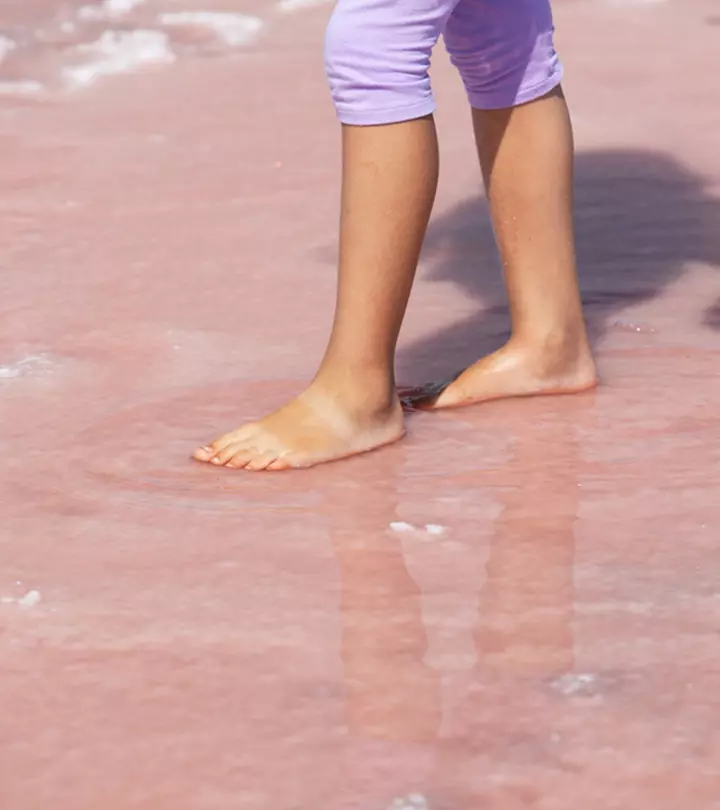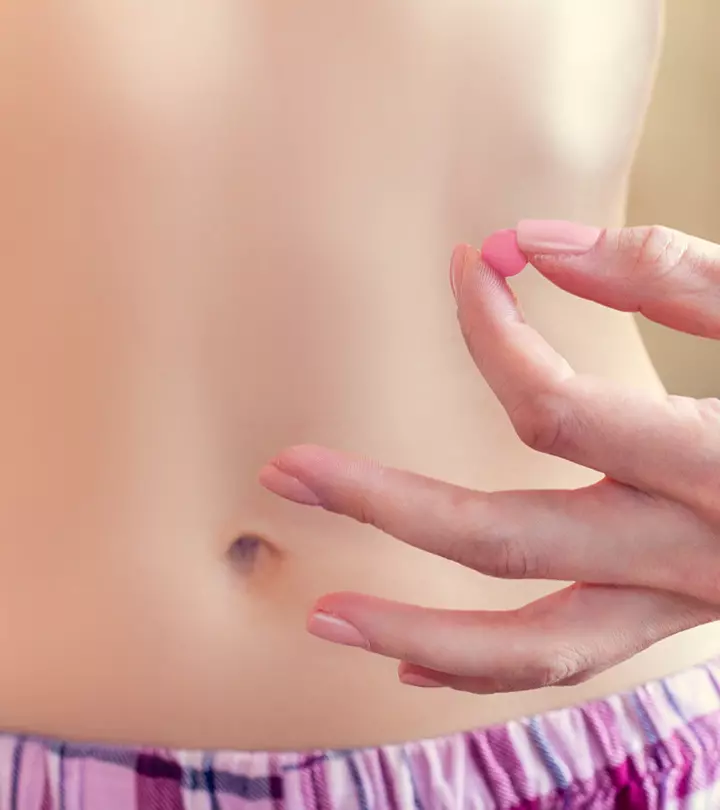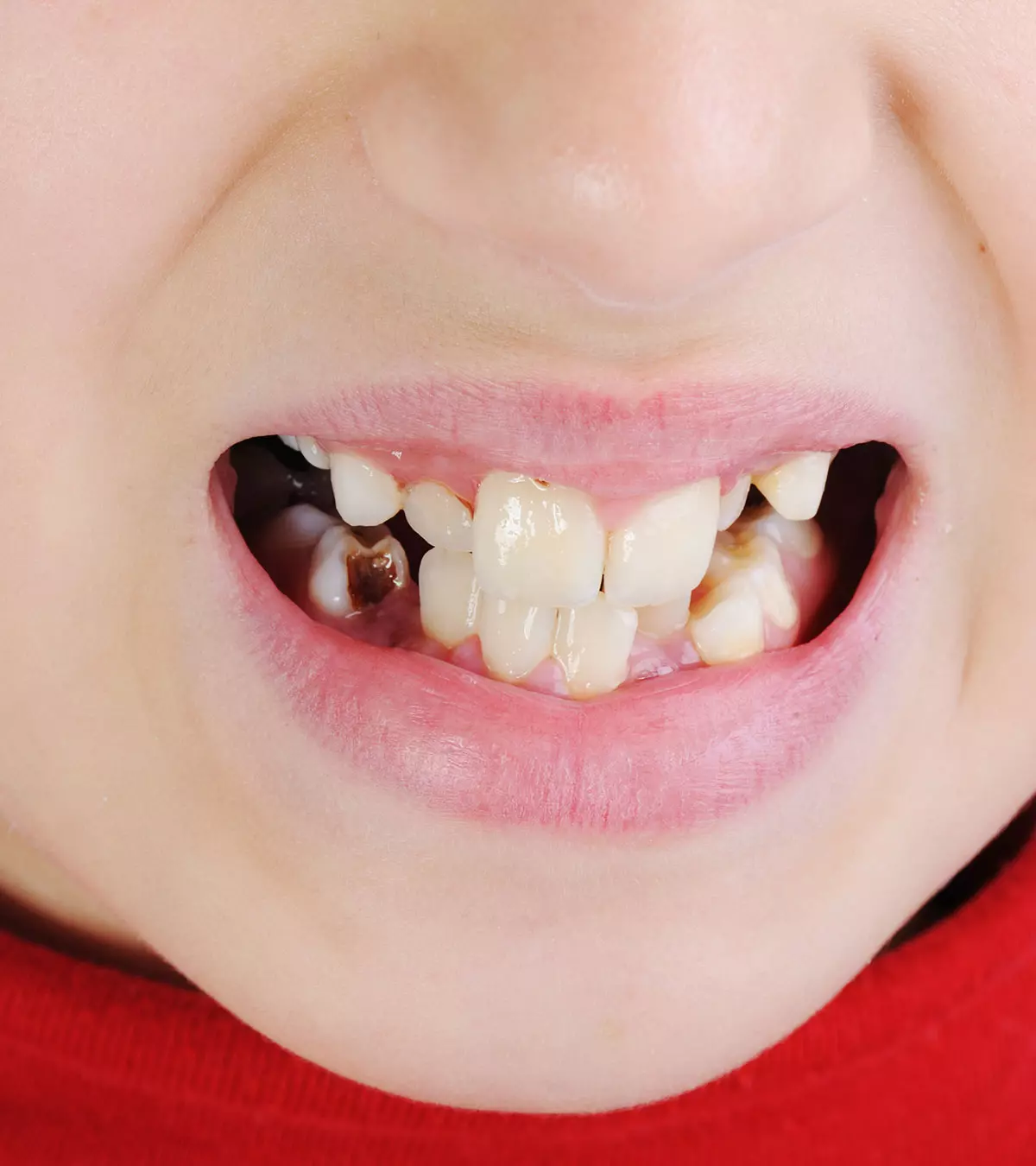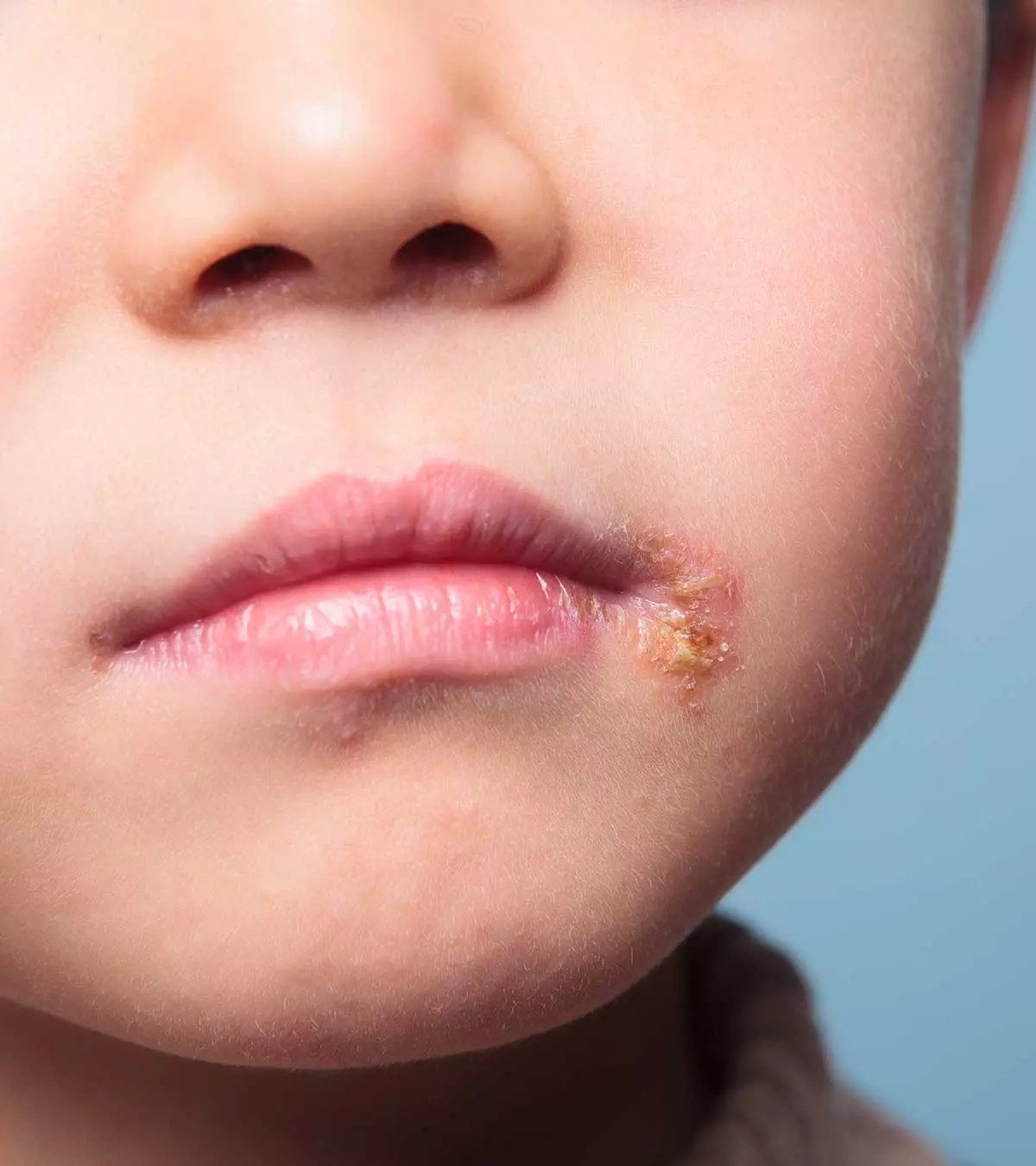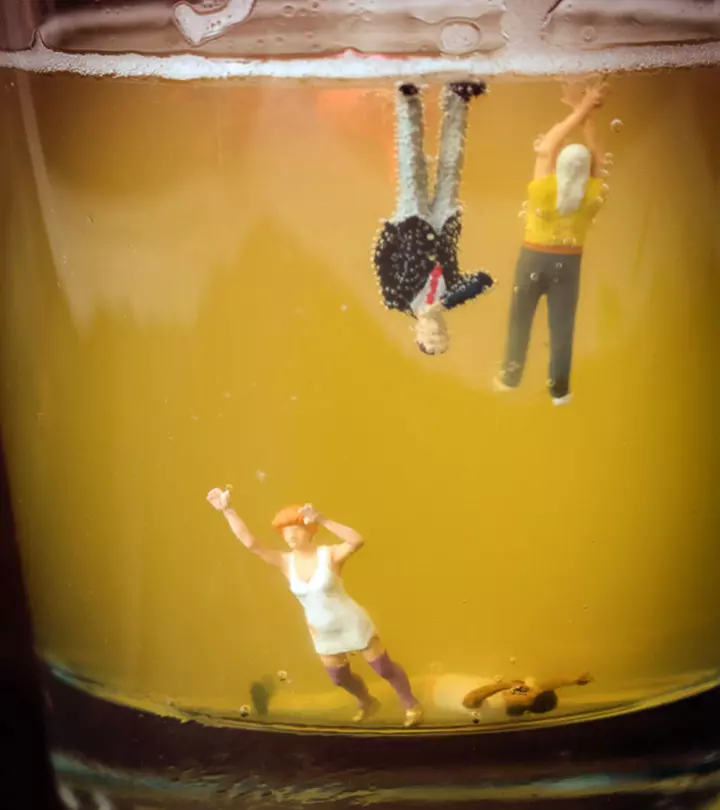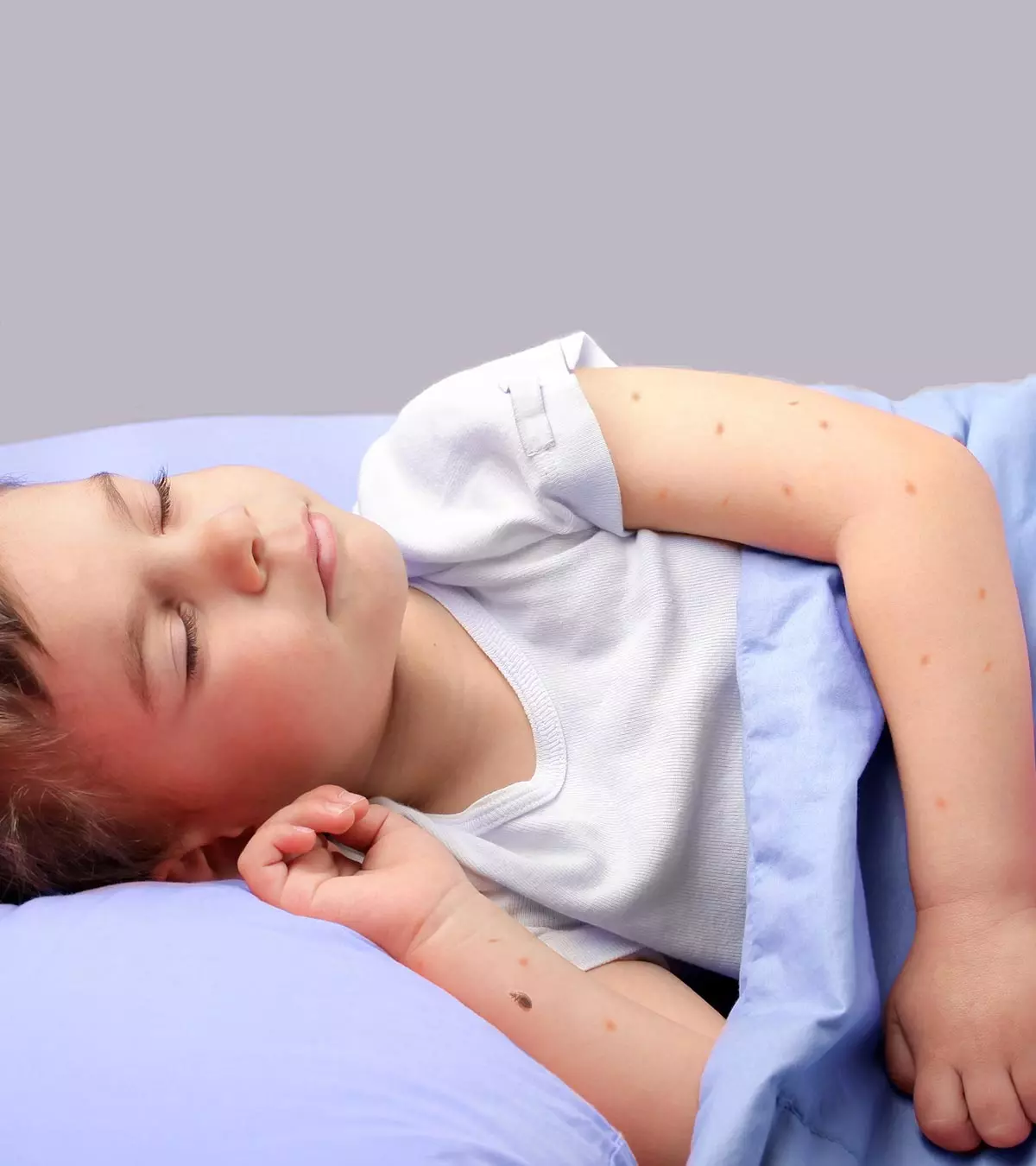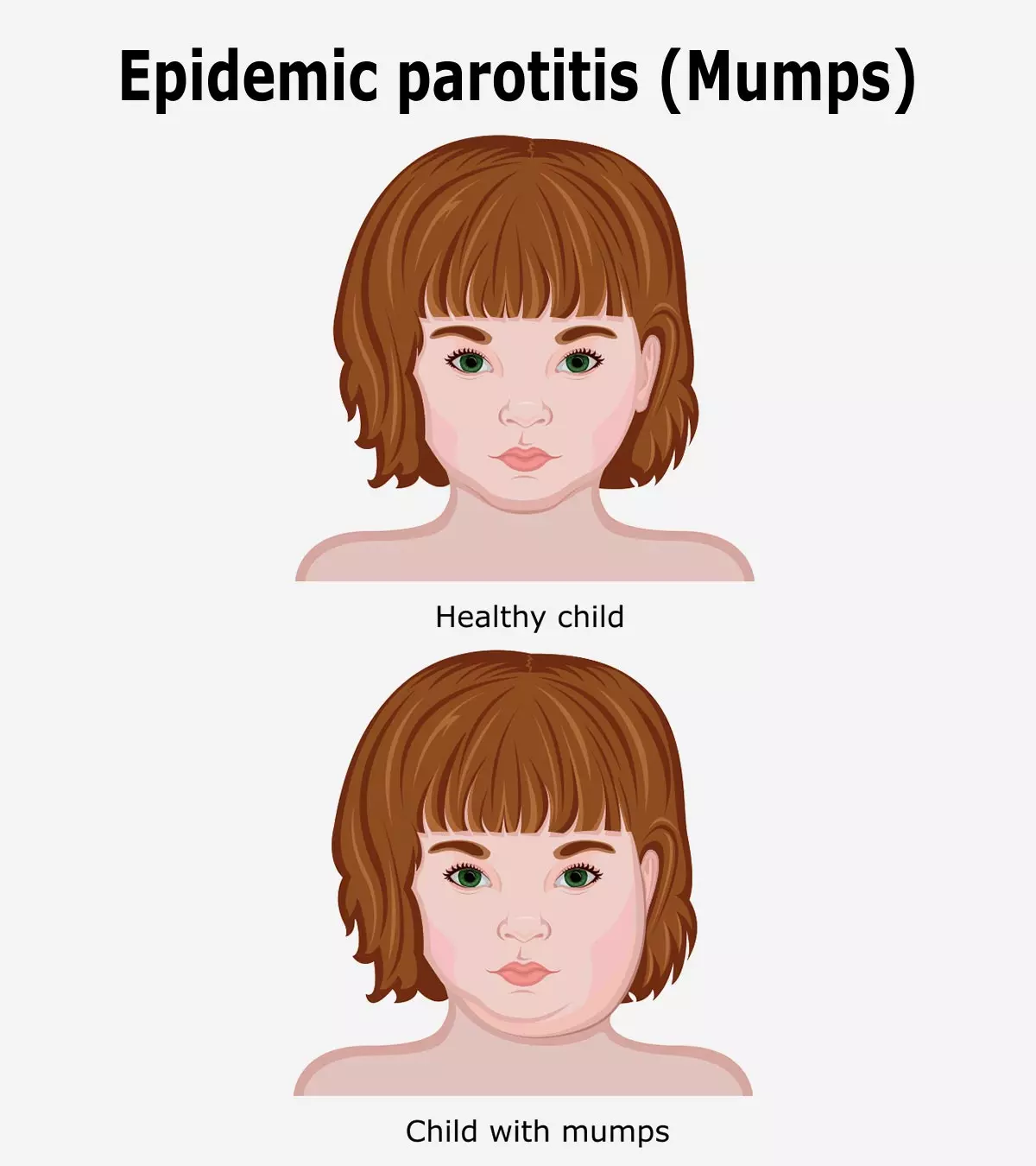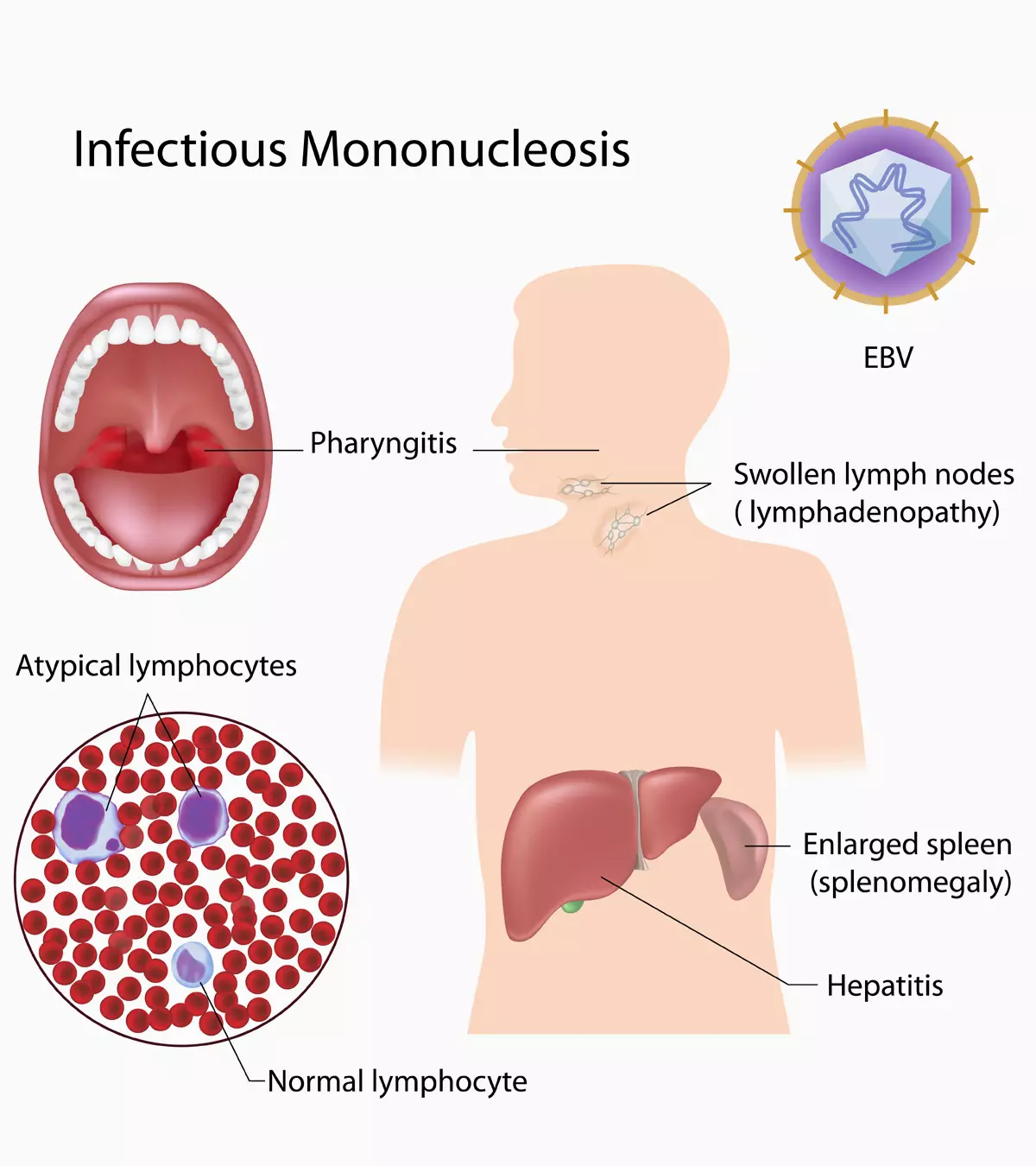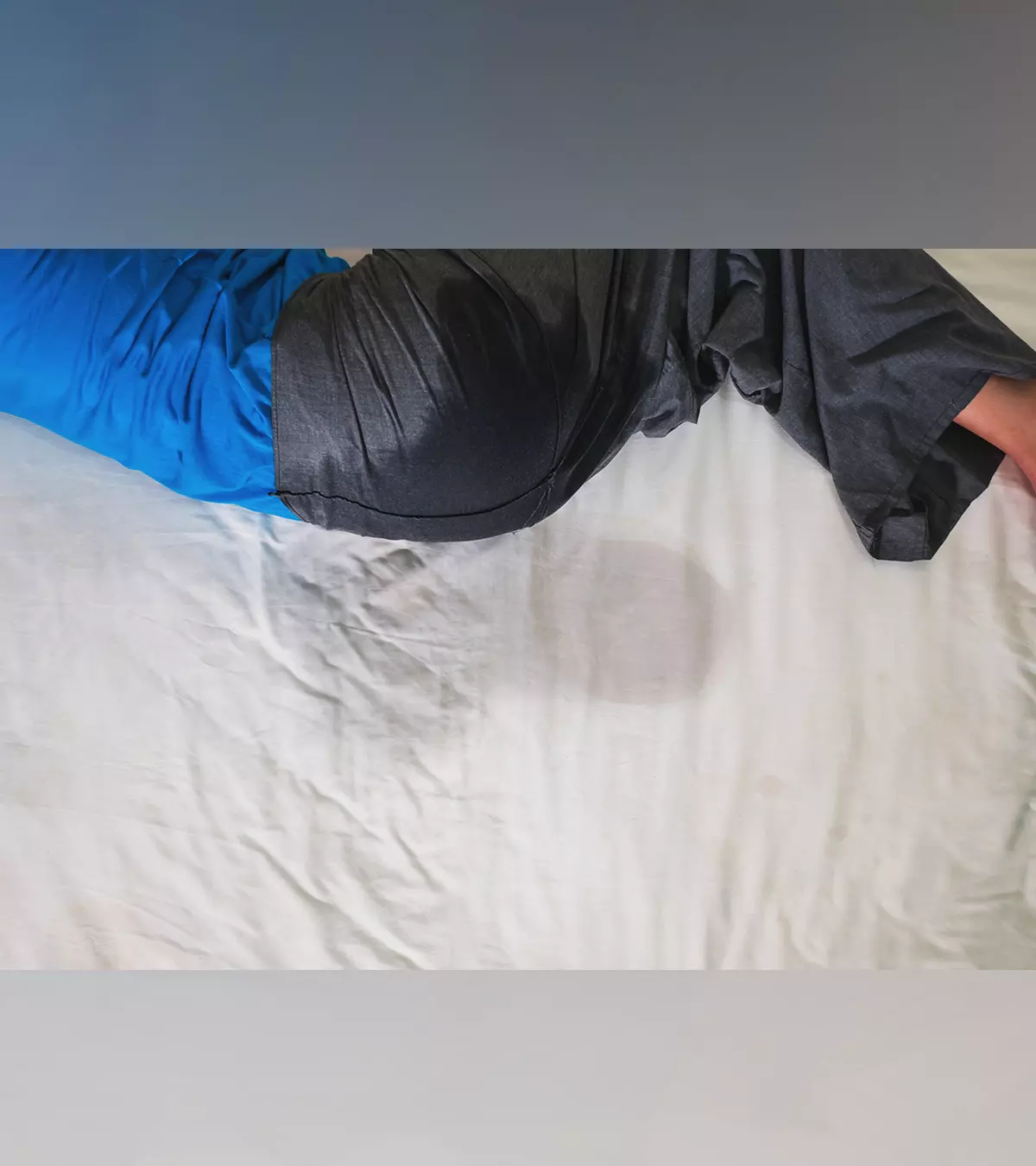
Image: ShutterStock

Bedwetting in teenagers can impact their self-esteem and cause worries in parents. Also known as nighttime incontinence or nocturnal enuresis, this condition causes the person to pass urine involuntarily while asleep.
Nearly 1–2% of teens are affected by this condition (1). In addition, some teens may have daytime bladder problems such as diurnal enuresis. Bedwetting is not always caused by disorders or diseases. Nevertheless, seeking medical care is recommended if your teen has frequent bedwetting.
It is important you understand this condition because it can impact your child’s self-confidence and relationships and cause emotional struggles. Read on to know the causes, complications, and treatment for bedwetting in teenagers.
Key Pointers
- Maturation delay, deep sleep, poor bathroom habits, and caffeine overuse can cause bedwetting or nocturnal enuresis in teenagers.
- Teens with positive family history, stress, chronic conditions, and those taking certain medications are at increased risk of bedwetting.
- Lifestyle changes, moisture alarms, and certain medications are recommended to treat bedwetting in teens.
Types Of Nocturnal Enuresis
There are two types of nocturnal enuresis — primary and secondary enuresis. In primary enuresis, a teen has always had bladder control problems at night and has always wet the bed. A teen with secondary enuresis wets the bed after not doing so for at least six months (2).
Primary enuresis is usually more common and is associated with developmental delays. Both primary and secondary enuresis in teens warrants pediatric evaluation since it could indicate an underlying health issue.
Possible Causes Of Bedwetting In Teenagers
Below are some of the possible causes of bedwetting in teens (3) (4).
- Maturation delay: The brain coordinates with the bladder and decides when it is appropriate to pass the urine. Almost 90 percent of children develop this ability by age seven, but some may not until later in life (5). Some of these children and teens may also have a small bladder or an underdeveloped bladder incapable of holding urine produced during the night, causing bedwetting. In some other cases, muscle spasms can make the bladder incapable of holding a normal urine amount.
- Deep sleep: Some children and teens can’t sense a full bladder when in a deep sleep and wet their bed. However, the research has not been able to corroborate the observation (6). In other cases, disrupted sleep and excessive daytime sleepiness could cause a child or teen to wet their bed while sleeping (7).
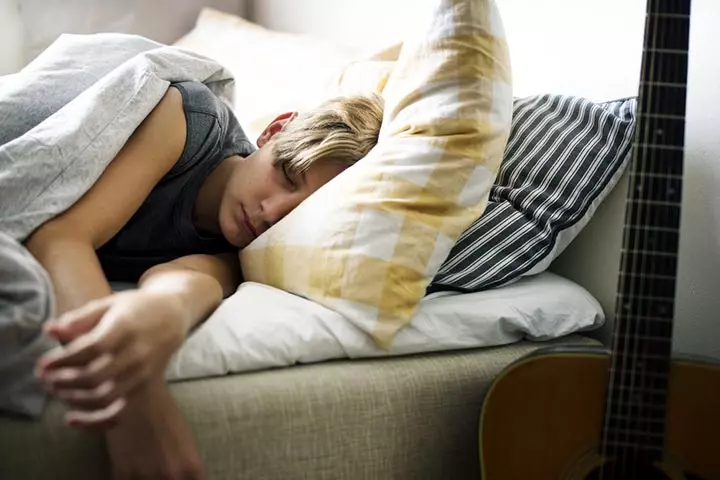
Image: Shutterstock
- Hormonal imbalance: Antidiuretic hormone (vasopressin or ADH) signals the body to make less urine at night. Low concentration of this hormone in some children and teens could result in excess urine production at night.
- Poor bathroom habits: Some teens might have a habit of holding urine for too long, especially during the daytime. This voluntary action may eventually lead to bladder control problems, leading to bedwetting.
- Caffeine overuse: Caffeine is a diuretic that increases urine production. When consumed in the latter half of the day, it may interfere with sleep and increase a teen’s chances to bed wet (7). Beverages, such as coffee, tea, soda, and energy drinks, are the common sources of caffeine for teens. Just like caffeine, consuming too much water or other liquids late in the evening may cause bedwetting.
No child or teen bed wets on purpose. Mostly, the interplay of two or more factors triggers nocturnal enuresis.
 Did you know?
Did you know?Risk Factors For Bedwetting
A child or teen is at greater risk of developing nocturnal enuresis in the following scenarios.
- Family history: Studies show that bedwetting can be inherited. Scientists have identified specific “bedwetting genes” that could cause enuresis in children and teens with a family history of the condition. Research shows that a child has a 75 percent chance to develop enuresis if both parents were bedwetters (3). The risk drops to 15 percent if the child does not have a family history.
- Stress: Experts believe that stressful events, such as family crises, bullying at school, and accidents or trauma, could cause secondary enuresis in children, both younger ones and those in the adolescent stage (2). Children and teens may also eat more salty foods or drink too much caffeine to alleviate stress. However, these habits further exacerbate bedwetting.

Image: IStock
- Medical conditions: Certain health conditions, such as constipation and urinary tract infections (UTIs), may cause nocturnal enuresis in children and teens. Chronic constipation could create tension on the bladder, causing a child to lose bladder control (2). In rare cases, a sleep disorder, such as obstructive sleep apnea, may trigger bedwetting by triggering chemical changes in the brain due to problematic or interrupted breathing.
Neurological or urinary system abnormalities, diabetes, and ADHD may also enhance the chances of developing nocturnal enuresis. Boys are twice as much at risk than girls of developing the condition (4).
Diagnosis Of Bedwetting In Teens
Determining the exact cause or causes of bedwetting requires pediatric evaluation, especially when a teen has suddenly started bedwetting. The bedwetting diagnosis is likely to involve the following (3) (6) (8).
- Physical exam: During a physical exam, a doctor will palpate and inspect the flank, abdomen, and lower back of the teen to detect physical or physiological abnormalities. They will also collect the teen’s medical and family history and discuss symptoms (such as urgency to pee and pain or burning sensation during urination), sleep patterns, and bowel habits. The doctor may also discuss any stressful events that may be contributing to the condition.
- Urinalysis and urine culture: These tests will analyze the urine for the presence of blood, or any other element, such as glucose, to rule out a health issue. The possibility of UTIs can also be ruled out using these tests. If urinalysis and physical examination does not highlight an issue, then no further testing is required. However, additional tests, such as a renal ultrasound exam, may be suggested if they indicate a problem.

Image: Shutterstock
- Imaging: Renal bladder ultrasound, voiding cystourethrogram (VCUG), and urodynamics study are additional tests that a doctor may perform. The renal bladder ultrasound can determine the size and shape of your child’s kidney and bladder and rule out the presence of obstruction or abnormalities. VCUG checks for the reverse flow of urine into the ureters and kidneys. The urodynamic study inspects the bladder and ureter contraction during the filling and emptying of the urine.
All these tests can help find the underlying cause of bedwetting in teens. Timely diagnosis can help plan a treatment and management regimen to resolve the condition effectively.
Treatment For Bedwetting In Teens
In most cases, bedwetting resolves on its own. However, if it doesn’t, the treatment can involve the following (3) (9).
1. Lifestyle changes

Image: Shutterstock
Encourage teens to stay well hydrated but limit the intake of too much water or caffeinated beverages late in the evening. Work on bladder training by developing a toilet routine. You can also try pelvic floor exercises and other behavioral interventions to overcome bladder issues. Address underlying causes, such as constipation and sleep apnea, to resolve the condition without additional interventions. Using rewards for dry nights and encouraging the teen to use the bathroom before bed may also be effective. You may also encourage them to keep a diary of bedwetting incidents to identify patterns and triggers and allow for a personalized treatment plan.
2. Moisture alarms
Moisture alarms are small, battery-operated devices that one can purchase from pharmacies without a prescription. A teen can connect them to a moisture-sensitive pad on the teen’s trousers or bedding before sleep. When the pad is wet, the alarm goes off. It will help a teen wake up and be void. In case a teen does not wake up, another person may wake them.
The daily use of moisture alarms may take six weeks to three months to develop a toilet routine and reach completely dry nights. Motivate a teen to be patient and persistent.
3. Medications
If the above treatment modalities don’t prove useful, a teen may be prescribed medications to stop bedwetting for a short duration. However, no medicine cures bedwetting (10).
- Desmopressin (DDAVP): It helps reduce the amount of urine produced at night. A teen should take the drug before bed and not consume fluids or liquids later to prevent electrolyte imbalance. The drug has minimal side effects. It is available in both nasal spray and pill forms.
- Oxybutynin: If DDAVP did not work alone, oxybutynin (Ditropan XL) could be prescribed as an accompaniment. Oxybutynin is an anticholinergic drug that may reduce bladder contraction and allow the bladder to hold the urine longer. Its use is usually prevalent in patients with small bladders.
 Be watchful
Be watchful- Imipramine: It is used in children older than six years. It is available in capsule or tablet form. It may cause side effects such as anxiety, irritability, moodiness, insomnia, and appetite loss. Imipramine is usually prescribed only to patients who do not respond to other treatments (2). Teens with cardiovascular issues should avoid this medicine.
Medication use should be considered only after a thorough pediatric evaluation.
Possible Complications Of Bedwetting In Teens
Unless caused by a health issue, bedwetting is a benign condition. However, it may lead to some other problems in older children and teens.
- Low self-esteem: A teen with a bedwetting issue feels embarrassed and always worried about someone finding out. This constant stress and feeling of shame hampers the teen’s self-esteem and lowers their confidence.
- Social isolation: With low self-esteem and confidence, a teen may struggle to keep up with friends and family. They may voluntarily begin to isolate themselves by avoiding plans where they have to be alone with others. Night outs and sleepover plans with friends are some joyful events that they wish to attend but avoid compulsively.
Emily, a mother to two, reminisces about her teenage years when she suffered from a dire case of enuresis. She says, “I had to miss out on fun experiences that pretty much everyone else would have got to experience. But because I didn’t want the gossip and the ridicule and just the embarrassment of a condition that I really couldn’t control, I had to make little sacrifices like that. It also really worried me about marriage in the future, like what would my husband think (i).”
- Urinary tract infections: UTIs are one of the physical complications of bedwetting due to prolonged exposure to moisture. Constant wetness can also cause a genital rash, which is more common in children than teens as they tend to sleep in wet undergarments.
If bedwetting progresses into adulthood, it could affect an individual’s relationships and bring negative behavioral changes, such as anxiety and depression.
Tips For Coping With Bedwetting In Teens
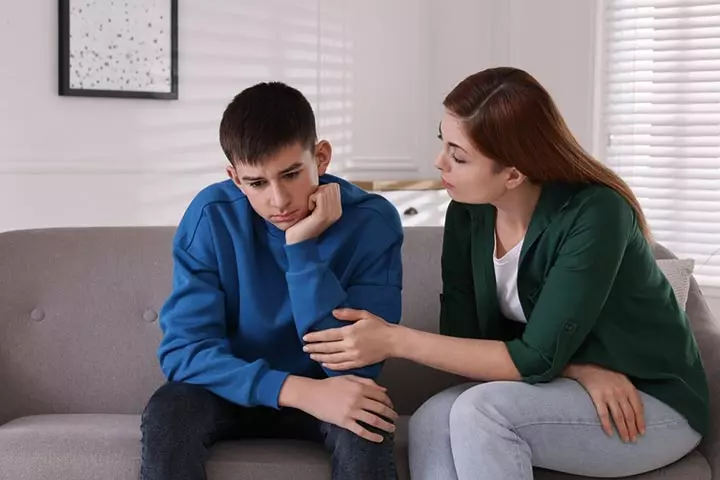
Image: Shutterstock
Constant parental support and guidance can help a teen cope with bedwetting blues effectively. Here are some tips that you can try.
- Accept your teen still bed wets, and they need your support and guidance to overcome and manage the problem. Before you help your teen overcome shame and disgust, you need to accept the issue yourselves.
- Respect teen’s privacy and don’t discuss their bedwetting issue with any other family member if they don’t want to. Never force them to open up. Instead, support them and help them talk gradually.
- Offer assurance that bedwetting is not their fault. If you feel the teen isn’t comfortable talking to you, consult a therapist who could speak to them. Talking therapy or counseling helps regain self-worth and confidence lost due to embarrassment.
- Encourage them to keep track of their habits to know the triggers of bedwetting. This way, you can involve the teen in the treatment with more consciousness and willingness.
- Instill persistence and patience in your teen. Explain to them that the treatment might not work immediately, and a positive attitude can help them cope with the issue effectively.
- Let your teen be responsible by letting them clean the bed after they have wet it. If possible, provide them with a washable mattress. Taking responsibility lets a teen accept the problem and work towards it.
- Practice positive self-imagery with your teen. Thinking about waking up dry before sleep can help stop bedwetting in some cases.
- Be supportive and kind. Try not to show your anger or frustration if you ever lose your calm. It can further damage the teen’s self-esteem and shatter their confidence to outgrow the problem.
- Encourage them to socialize by allowing them to participate in overnight activities. Tell them that effective strategies can help them overcome their fear of bedwetting when away from the house. For instance, provide them with disposal undergarments which look similar to regular ones. Give them a plastic bag that they can use to dispose of wet undergarments discreetly.
- Train them to use positive coping strategies when a friend or someone in the family accidentally gets to know the issue. For instance, train your teen to talk to the person and share their feelings as openly as possible.
Frequently Asked Questions
1. How common is bedwetting among teenagers?
Around two in every hundred teens and young adults experience urinary incontinence at bedtime. Many who experience this condition have usually had it since childhood but may not have received sufficient help to overcome it (11).
2. Can puberty cause frequent urination in teens?
The hormonal changes during puberty can affect a teen’s bladder health, resulting in frequent urination and urinary incontinence. Though it is generally not a cause for concern, you could consult your doctor if the condition does not improve (12).
3. How does bedwetting in teenagers affect their social and emotional development?
Research suggests that bedwetting makes teenagers experience significantly lower global self-esteem and concerns about physical appearance than those who don’t have the condition (13). This, in turn, can make them antisocial and aloof. In addition, the feeling of embarrassment that comes with bedwetting can adversely impact a teenager’s quality of life.
4. Is there any connection between bedwetting in teenagers and mental health issues?
According to research, generalized anxiety disorder can possibly cause bedwetting in teenagers (14). Bedwetting, a study suggests, is associated with parent-reported psychological issues. Further, distress caused to the child due to bedwetting and parental intolerance for it may also lead to psychological problems (15).
5. How can I help my teen feel more comfortable discussing bedwetting?
To help your teen feel more at ease talking about bedwetting, focus on open and supportive communication. Create opportunities for them to share their feelings freely with you, and remind them that many others go through the same thing.
Bedwetting in teenagers is not usually a health risk, but it can negatively impact their self-esteem and confidence. The condition can be classified as primary or secondary nocturnal enuresis, depending on whether it was present throughout childhood or developed later in adolescence. In most cases, bedwetting in children or teens resolves on its own. However, if treatment is necessary, identifying the probable causal factors can assist in developing an effective treatment strategy. Consistent parental supervision and support can also help teens deal with the stress and shame associated with bedwetting.
Infographic: Ways To Treat Bedwetting In Teens
Factors such as family history or stress may cause bedwetting in teens. It may cause substantial embarrassment to the teen and make them socially withdrawn. The infographic below provides some effective ways to manage the condition in teens. Make sure to consult a pediatrician before giving any medications to your teen.
Some thing wrong with infographic shortcode. please verify shortcode syntax
Uncover the multifaceted causes of bedwetting in teenagers, including stress, hormones, and medical conditions, as we delve deeper into these factors and more in this video.
Personal Experience: Source
MomJunction articles include first-hand experiences to provide you with better insights through real-life narratives. Here are the sources of personal accounts referenced in this article.
i. My biggest kept secret: I wet the bed until I was 18.https://www.youtube.com/watch?v=4r4x-3U4Z7A
References
1. Definition & Facts for Bladder Control Problems & Bedwetting in Children; National Institute of Diabetes and Digestive and Kidney Diseases
2. Bedwetting in Children & Teens: Nocturnal Enuresis; AAP
3. Bedwetting (Nocturnal Enuresis); Teens Health From Nemours
4. Enuresis; Nicklaus Children’s Hospital
5. Nocturnal Enuresis (Bedwetting); Urology Care Foundation
6. Nocturnal Enuresis; American Academy Of Family Physicians
7. Darcie A. Kiddoo; Nocturnal enuresis; NCBI
8. Bedwetting (Nocturnal Enuresis) | Diagnosis & Treatments; Boston Children’s Hospital
9. Bedwetting; Canadian Paediatric Society
10. Bedwetting Treatment; University of California San Francisco
11. Bedwetting in Teenagers and Young Adults; Continence Foundation of Australia
12. A Quick Guide To Puberty & Frequent Urination; Ontex Healthcare
13Nocturnal Enuresis: The Management of Bedwetting in Children and Young People; NCBI
14. Bahman Salehi et al; The Relationship Between Child Anxiety Related Disorders and Primary Nocturnal Enuresis; NCBI
15. Carol Joinson et al; Psychological Problems in Children with Bedwetting and Combined (day and night) Wetting: A UK Population-Based Study; Journal of Pediatric Psychology
Community Experiences
Join the conversation and become a part of our nurturing community! Share your stories, experiences, and insights to connect with fellow parents.
Read full bio of Dr. Marwa Yahfouf
Read full bio of Swati Patwal
Read full bio of Rohit Garoo
Read full bio of Shinta Liz Sunny





